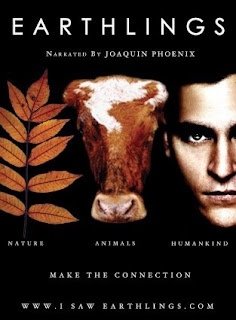Genetically modified crops are promoted on the basis of a range of far-reaching claims from the biotech industry and its supporters. A new, evidence-based report by U.K. scientists shows these claims are unsubstantiated. Here is a snapshot of their findings.
MYTH #1: Genetic engineering is just an extension of natural breeding.
TRUTH: Genetic engineering is very different from natural breeding and poses special risks. Natural breeding occurs between like life forms-a cat with a cat, not a cat with a dog or a tomato with a fish. GM transfers DNA between unrelated organisms in ways that do not occur naturally.
MYTH #2: GM foods are strictly regulated for safety.
TRUTH: GM food regulation in most countries varies from non-existent (the U.S.) to weak. In the U.S. the FDA overruled its own scientists to form a GM policy, in the 1990s. The policy required no safety testing or labeling.
MYTH #3: GM foods are safe to eat.
TRUTH: GM foods can be toxic or allergenic. Peer-reviewed studies have found serious, harmful effects on the health of livestock and lab animals fed GMOs.
MYTH #4: GM Bt insecticidal crops harm only insects and are harmless to animals and people.
TRUTH: GM Bt insecticidal crops pose hazards to people and animals that ingest them. Findings include toxic effects on the small intestine, liver, kidney, spleen, and pancreas, and disturbances in the digestive and immune systems.
MYTH #5: GM animal feed poses no risks to animal or human health.
TRUTH: GM feed affects the health of animals and may affect the humans who eat their products. Bt toxin protein has been found in the blood of pregnant women and the blood supply to their fetuses.
MYTH #6: GM crops increase yield potential.
TRUTH: GM crops do not increase yield potential-and in many cases decrease it. Dr. Doug Gurian-Sherman: "Traditional breeding ...can be solely credited with the intrinsic yield increases in the U.S. and other parts of the world that characterized the agriculture of the 20th century:'
MYTH #7: GM crops decrease pesticide use.
TRUTH: GM crops increase pesticide use. In the first 13 years since their introduction, in 1996, GM crops increased pesticide use by 383 million pounds.
MYTH #1: Genetic engineering is just an extension of natural breeding.
TRUTH: Genetic engineering is very different from natural breeding and poses special risks. Natural breeding occurs between like life forms-a cat with a cat, not a cat with a dog or a tomato with a fish. GM transfers DNA between unrelated organisms in ways that do not occur naturally.
MYTH #2: GM foods are strictly regulated for safety.
TRUTH: GM food regulation in most countries varies from non-existent (the U.S.) to weak. In the U.S. the FDA overruled its own scientists to form a GM policy, in the 1990s. The policy required no safety testing or labeling.
MYTH #3: GM foods are safe to eat.
TRUTH: GM foods can be toxic or allergenic. Peer-reviewed studies have found serious, harmful effects on the health of livestock and lab animals fed GMOs.
MYTH #4: GM Bt insecticidal crops harm only insects and are harmless to animals and people.
TRUTH: GM Bt insecticidal crops pose hazards to people and animals that ingest them. Findings include toxic effects on the small intestine, liver, kidney, spleen, and pancreas, and disturbances in the digestive and immune systems.
MYTH #5: GM animal feed poses no risks to animal or human health.
TRUTH: GM feed affects the health of animals and may affect the humans who eat their products. Bt toxin protein has been found in the blood of pregnant women and the blood supply to their fetuses.
MYTH #6: GM crops increase yield potential.
TRUTH: GM crops do not increase yield potential-and in many cases decrease it. Dr. Doug Gurian-Sherman: "Traditional breeding ...can be solely credited with the intrinsic yield increases in the U.S. and other parts of the world that characterized the agriculture of the 20th century:'
MYTH #7: GM crops decrease pesticide use.
TRUTH: GM crops increase pesticide use. In the first 13 years since their introduction, in 1996, GM crops increased pesticide use by 383 million pounds.






